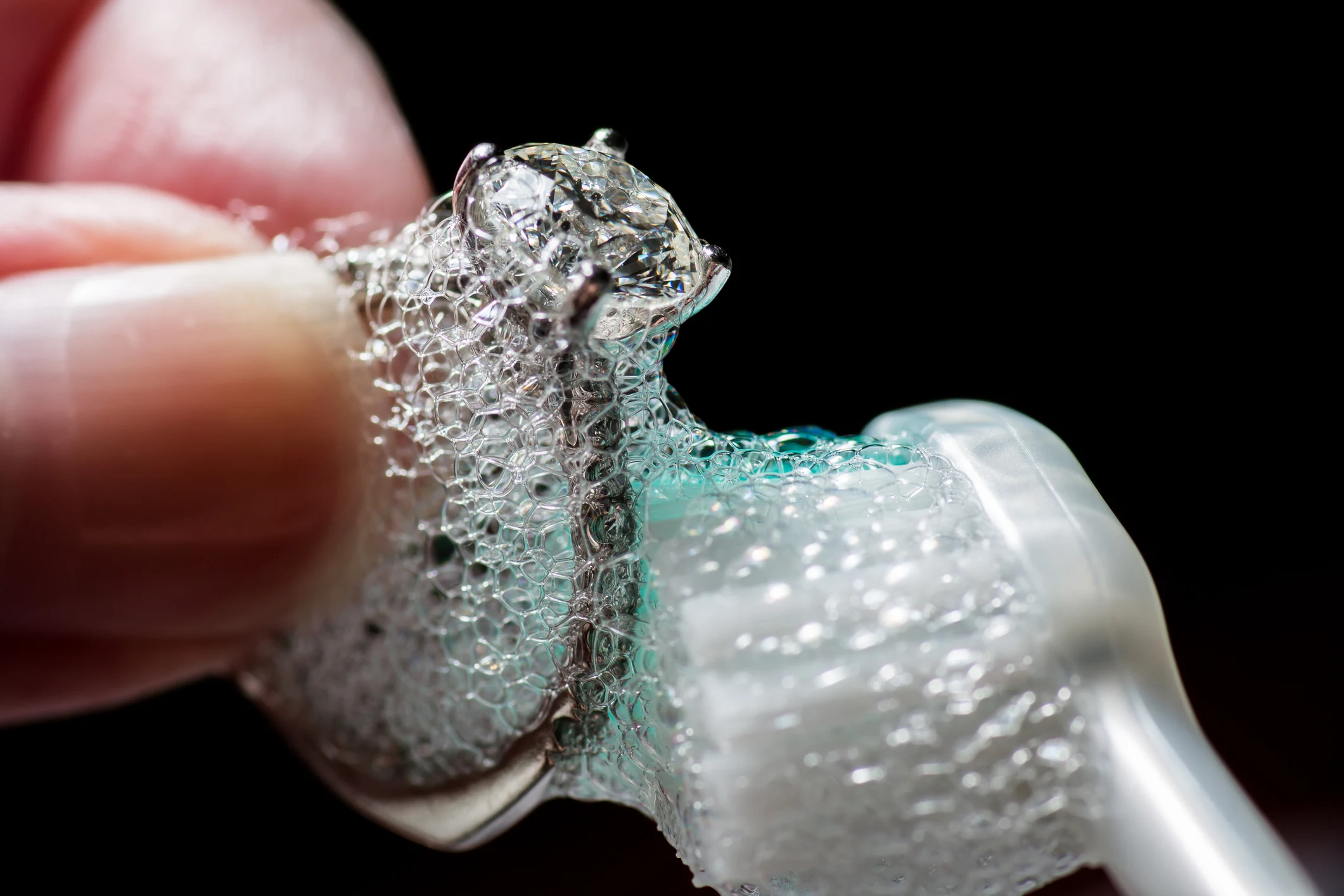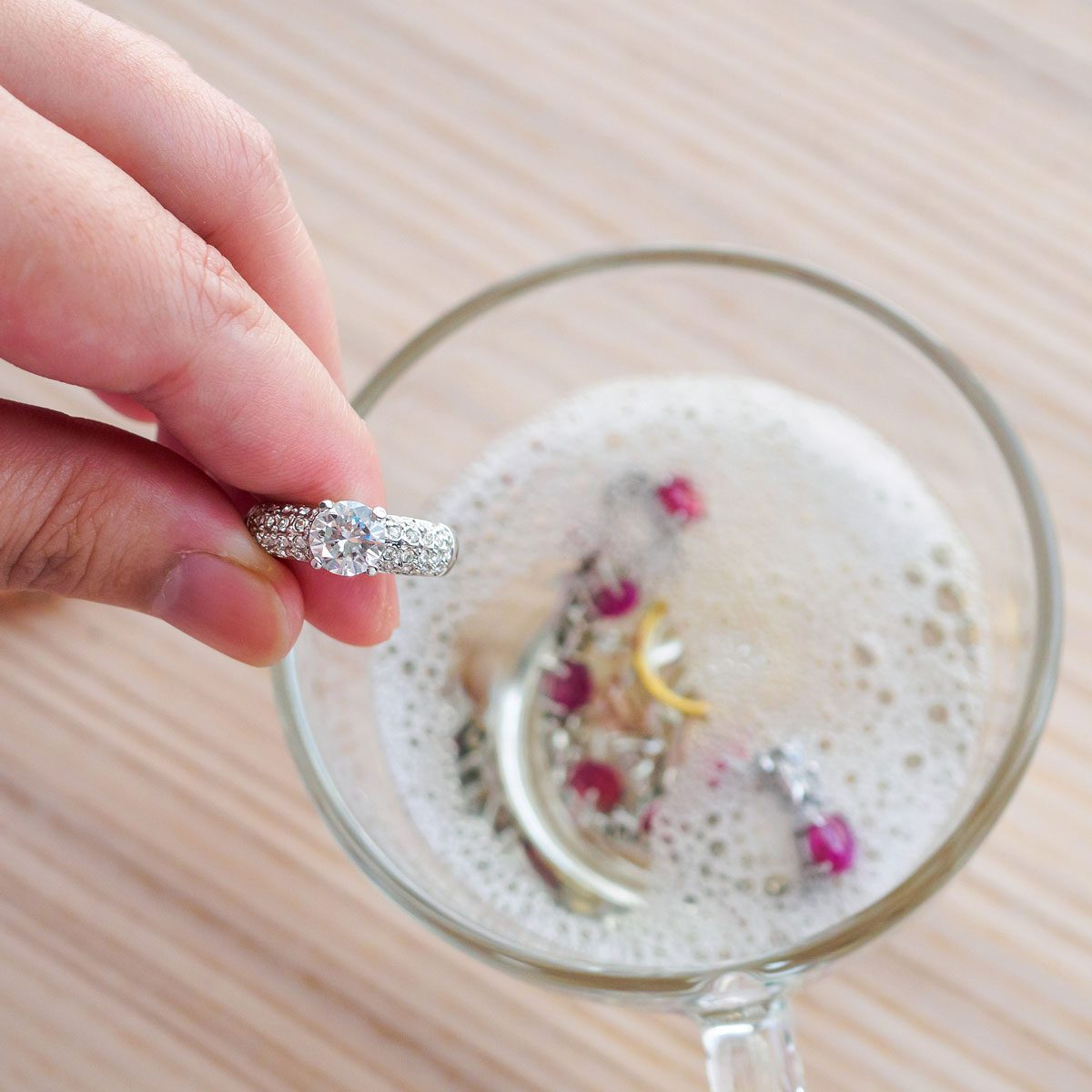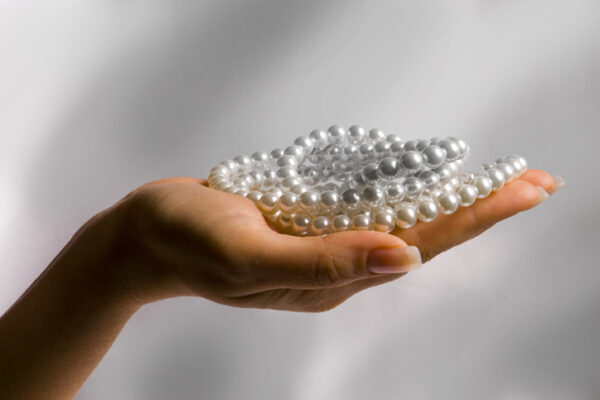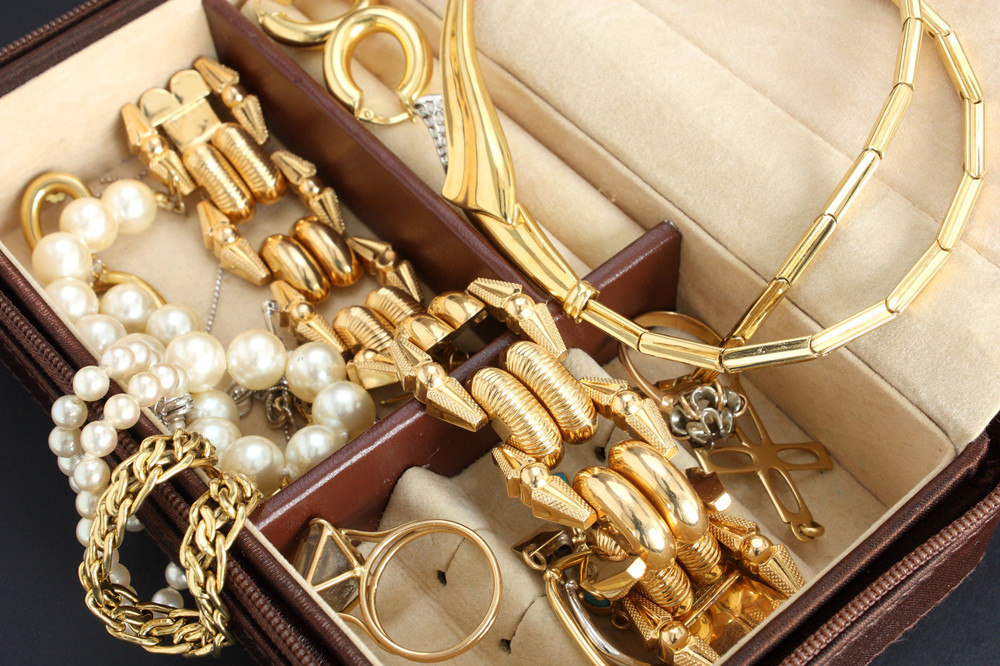Jewelry, an indispensable component of any wardrobe, necessitates meticulous preservation to preserve its luster and newness. To maintain the jewelry's appearance, it is imperative to follow a simple and effortless process of cleaning and upkeeping at home. Presented below is a comprehensive guide on how to immaculately clean and maintain your cherished jewelry within the comforts of your home.

The acquisition of jewelry is an investment, and in order to preserve its pristine condition, it is of utmost importance to handle it with proper care. Maintaining jewelry at home through regular cleaning and upkeep can thwart tarnishing, discoloration, and any potential damage. It is paramount to have knowledge of the diverse categories of jewelry and how to undertake appropriate cleaning procedures to avert any harm.
*Understanding Different Types of Jewelry
Prior to delving into the topic of cleaning, it is imperative to acquire a comprehensive understanding of the various types of jewelry and how to aptly maintain them. The likes of gold, silver, diamonds, pearls, and costume jewelry necessitate varying techniques of cleaning and upkeep. It is crucial to have a clear idea of the type of jewelry in possession to avoid any harm.
-Cleaning Gold Jewelry
Cleaning gold jewelry is comparatively straightforward and can be accomplished effortlessly at home. To clean gold jewelry, you would require a gentle dish soap, warm water, and a brush with soft bristles. Initially, blend the dish soap and warm water in a receptacle, then immerse the brush in the mixture and delicately scrub the jewelry. Subsequently, cleanse the jewelry with warm water and pat dry it using a soft cloth.
-Cleaning Silver Jewelry
Silver jewelry is particularly susceptible to tarnishing, but it can be restored using a silver polishing cloth. Additionally, it can be cleansed by utilizing a soft-bristled brush, mild dish soap, and warm water. To commence the cleaning process, amalgamate the dish soap and warm water in a basin, dip the brush into the solution, and gently scrub the jewelry. Subsequently, rinse the jewelry with warm water and pat dry it using a soft cloth.

-Cleaning Diamond Jewelry
Diamonds are indeed sturdy, but proper care is still necessary to keep them looking their finest. A soft-bristled brush, mild dish soap, and warm water can all be used to clean diamond jewelry. Start by blending the dish soap and warm water in a container, and then immerse the brush into the solution, using it to delicately scrub the jewelry. Afterwards, rinse the jewelry with warm water and pat dry it using a soft cloth.
-Cleaning Pearl Jewelry
Pearls are considered fragile, which means they require extra attention and care when it comes to cleaning. Avoid using any abrasive substances or harsh chemicals as it may damage the pearls' surface. Instead, use a mild soap solution and a soft-bristled brush to gently clean the pearls. Dip the brush into the solution and gently scrub the pearls, then rinse them with warm water and dry them carefully with a soft cloth.

-Cleaning Costume Jewelry
Costume jewelry is often made of non-precious materials, and it's essential to be gentle when cleaning them. Use a soft-bristled brush and a mild soap to clean costume jewelry. Dip the brush into the solution and gently scrub the jewelry. Rinse the jewelry with warm water and dry it with a soft cloth.
*Maintenance Tips: Expert Tips for Keeping Your Jewelry Sparkling
As jewelry enthusiasts, we all know how important it is to keep our precious pieces looking their best. From sentimental family heirlooms to trendy statement pieces, each item in our collection requires special attention and care to ensure it stays in excellent condition for years to come.
-Start With a Jewelry Inventory
As connoisseurs of adornments, we are all cognizant of the gravity of preserving the immaculate state of our precious trinkets. Whether they are evocative familial heirlooms or voguish showpieces, each article in our repertoire necessitates particularized attention and meticulous handling to guarantee its longevity and preserve its luster for the ages to come.
-Invest in a Jewelry Cleaning Kit
Although it's possible to utilize everyday items such as baking soda or toothpaste to cleanse your adornments, it is highly recommended to procure a specialized cleaning kit intended for jewelry maintenance. A high-quality kit typically consists of a gentle cleaning solution, a delicate-bristled brush, and a polishing cloth, simplifying the process of restoring and rejuvenating your jewelry to its former sparkling glory.
-Understand the Cleaning Process for Each Material
It's crucial to acknowledge that diverse materials demand specific cleaning approaches, which implies comprehending the cleaning methodology for each category of jewelry in your possession. To illustrate, whereas gold jewelry can be cleansed using mild soap and water, silver necessitates a distinct cleaning solution tailored for it.
-Store Your Jewelry ProperlyStore
Alongside proper cleansing, appropriate storage is equally significant in the realm of jewelry upkeep. It's imperative to always store your adornments in a cool, arid location, keeping them out of direct sunlight and humid environments. To avoid entanglement and abrasions, it's advisable to keep each piece segregated in individual compartments. Steer clear of storing your jewelry in plastic bags as they can ensnare moisture, which can result in tarnishing and other forms of damage.

-Keep jewellery away from chemicals
Exposure to chemicals may damage or discolour precious metals (gold, silver and platinum) and may also cause damage to certain coloured gemstones. Even everyday household products such as hairspray, lotions, perfumes or other cosmetics contain chemicals that can permanently damage the surface of jewellery and other delicate or porous stones such as Turkish stones. Always remove fine jewellery before diving into a pool containing chlorine or using household cleaners. Many of these cleaners contain ammonia, which is too harsh for delicate gems or antique jewellery. Chlorine bleach is another common household solvent that can cause dents or damage to gold alloys.
·To prevent potential damage to your jewellery, it is recommended that you do not wear your jewellery during activities that could lead to exposure to chemicals, such as swimming or heavy cleaning work with abrasive chemicals.
·It's recommended to take off your jewelry before washing your hands or doing household chores to prevent dust and debris from accumulating on the surface of your jewelry, which can cause it to appear dull and lose its sparkle.
·Likewise, it is recommended that you remove your jewellery during physical activities such as running, lifting weights or performing manual labour to avoid any possible damage.
-Seek Professional Help When Needed
If you're apprehensive about cleansing your jewelry at home or if you possess an exceptionally valuable piece, it's advisable to seek the services of a professional. An expert in jewelry maintenance can safely and competently cleanse and refurbish your jewelry, guaranteeing its longevity and that it remains in pristine condition for many years to come.
-Be careful when cleaning
When cleaning jewelry at home, it's important to be careful and avoid any accidents. One way to do this is by washing the jewelry in a bowl or sink with the drain blocked to prevent it from falling down and creating a difficult-to-retrieve situation.
Caring for your jewelry at home is an essential part of maintaining your collection's longevity and beauty. By following these expert tips, you can keep your jewelry looking its best, no matter its age or value.
*Conclusion
In conclusion, cleaning and caring for your jewelry at home is a simple process that requires minimal effort and time. It's essential to understand the different types of jewelry and how to clean them properly to prevent any damage. Whether you have gold, silver, diamond, pearl, or costume jewelry, there's a cleaning method that can help keep your jewelry looking new and shiny. Proper storage and regular maintenance can also help prevent any damage and prolong the life of your jewelry. By following these tips, you can ensure that your jewelry remains beautiful and well-maintained for years to come.
Clean and Care for Your Jewelry at Home FAQs?

Here are some frequently asked questions about cleaning and caring for jewelry at home:
#Can I clean all types of jewelry at home?
Cleaning your jewelry at home can be a cost-effective solution, but it's important to know the appropriate cleaning methods for each type of jewelry to avoid potential damage. Specific types of gemstones, such as delicate or porous ones, may require special care to prevent any harm, and some metals may tarnish when exposed to certain chemicals.
#Can I use toothpaste to clean my jewelry?
While toothpaste can be used as a cleaning agent for jewelry, it's crucial to use a non-abrasive toothpaste along with a soft-bristled toothbrush. This will help prevent any potential scratches to the jewelry's surface while ensuring it stays clean and shiny.
#Can I use ultrasonic jewelry cleaners at home?
Yes, you can buy ultrasonic jewelry cleaners designed for home use. However, it's crucial to read and follow the instructions carefully and make sure that the cleaner is appropriate for the type of jewelry you have. Improper use of an ultrasonic cleaner can damage delicate or porous gemstones and certain metals. It's always a good idea to consult a professional jeweler before using an ultrasonic cleaner on your jewelry.
#How often should I clean my jewelry?
The frequency of cleaning your jewelry will depend on several factors, such as how often you wear it and the type of jewelry. As a general rule, you should aim to clean your jewelry every few months to keep it looking its best. However, if you wear your jewelry more frequently or if it comes into contact with dirt or chemicals, you may need to clean it more often. It's also a good idea to clean your jewelry before storing it for a long period to prevent tarnishing or damage.
#What should I do if my jewelry gets damaged?
If your jewelry becomes damaged, it's important to seek professional assistance from a jeweler for repair. Attempting to repair the jewelry yourself can lead to further damage and reduce its value.
Leave A Message
The first thing we do is meet with our clients and talk through their goals for a future project.
During this meeting, feel free to communicate your ideas and ask lots of questions.
Copyright ©2026 Wuzhou Tianyu Gems Co., Ltd - All Rights Reserved.